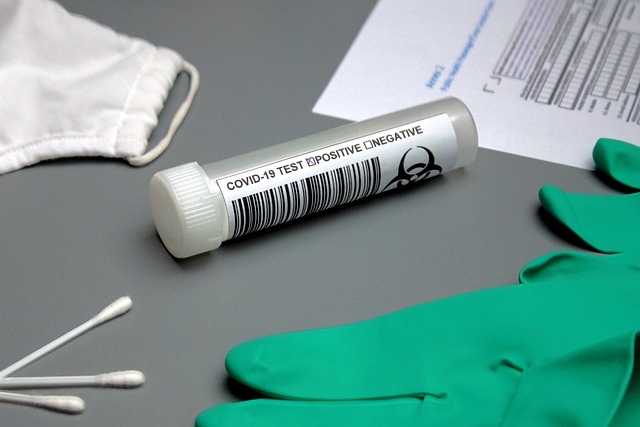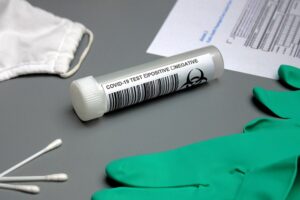

The Bureau of Internal Revenue (BIR) has released implementing rules on availment of tax incentives for the manufacture and importation of critical medical and healthcare equipment, supplies, and essential goods under the Bayanihan to Recover as One Act (BROA).
BIR Revenue Regulation (RR) No. 28-2020 implements Section 4 (cc) of Republic Act (RA) No. 11494 or BROA. This section liberalizes incentives for the manufacture or importation of critical equipment and supplies as well as essential goods and healthcare equipment and supplies needed to fight the coronavirus disease (COVID-19).
READ: Bayanihan 2 orders interventions to improve supply chain, lower logistics costs
RR 28-2020 is effective immediately until December 19, 2020.
BROA, also known as Bayanihan 2, effectively extends validity of the government’s COVID-19 programs and interventions under RA 11469, or the Bayanihan to Heal as One Act. RA 11469, which implemented the incentives for the importation of medical equipment and supplies, had its validity lapse last June.
READ: PPEs, medical equipment imports no longer duty-, tax-free
Under BROA, from June 25, 2020 to December 19, 2020, importation of goods identified as critical products, essential goods, equipment or supplies needed to contain and mitigate COVID-19 will be exempt from value-added tax (VAT), excise tax, and other fees.
Covered are personal protective equipment (PPE) such as gloves, gowns, masks, goggles, and face shields; surgical equipment and supplies; laboratory equipment and its reagents; medical equipment and devices; support and maintenance for laboratory and medical equipment, surgical equipment and supplies; medical supplies, tools, and consumables; testing kits, and such other supplies or equipment as determined by the Department of Health (DOH) and Department of Trade and Industry (DTI).
Also covered are equipment for waste management, including waste segregation, storage, collection, sorting, treatment and disposal services as approved by the Department of Environment and Natural Resources, DOH or other concerned regulatory agencies.
Covered as well are inputs, raw materials and equipment for the manufacture or production of essential goods related to containing or mitigating COVID-19 as enumerated in RR 28-2020.
To qualify for exemption from import duties, taxes, and other fees and ensure supply of PPE at competitive prices, the taxpayer must present a DTI certification that the equipment and supplies being imported are not locally available or of insufficient quality and preference.
Under BROA, preference is given to products, materials and supplies produced, made or manufactured in the Philippines.
The importation deemed exempted need not be issued an Authority to Release Imported Goods (ATRIG) under Revenue Memorandum Order No. 35- 2002, as amended, and may be released by the Bureau of Customs (BOC) without the ATRIG.
BIR may, however, conduct post investigation/audit on the importations released without ATRIG, RR 28-2020 noted.
Donations of these imported articles are exempt from donor’s tax if donated to or for use by the national government, any entity created by any of its agencies, or any political subdivision of the government.
Inputs, raw materials and equipment required to manufacture essential medical goods needed to contain and mitigate COVID-l9 as determined by the Food and Drug Administration, whether locally sourced or imported by the registered manufacturer, will also be exempt from VAT.
To avail of the exemption, suppliers of inputs, raw materials and equipment should submit a Certified True Copy of their License to Operate (LO) issued by the FDA, and a sworn declaration from the manufacturer-buyer that the items will be used to manufacture essential medical goods.
The grant of exemption is deemed effective beginning June 25, 2020, following the lapse of RA 11469, or the Bayanihan to Heal as One Act.
The VAT on all covered and qualified shipments/importations that may have been paid from June 25, 2020 up to September 14, 2020 will be refunded pursuant to Section 204(C) of the Tax Code. This is if the input tax on the imported items has not been reported and claimed as input tax credit in the monthly and/or quarterly value-added tax returns. It will also not be allowed as input tax credit pursuant to Section 110 of the Tax Code for purposes of computing the VAT payable of the concerned tax payer’s for the said period.
The sale of finished goods/products listed in RR 28-2020, whether locally manufactured or imported, is subject to VAT. The sale of inputs, raw materials and equipment to a non-holder of LO issued by the FDA is likewise subject to VAT.
READ: Duty-free imports of medical, educational products approved
Aside from the BIR issuance, Finance Secretary Carlos Dominguez III also recently signed Customs Administrative Order No. 12-2020, which provides implementing rules and regulations on the tax- and duty-free importation of goods under BROA.




